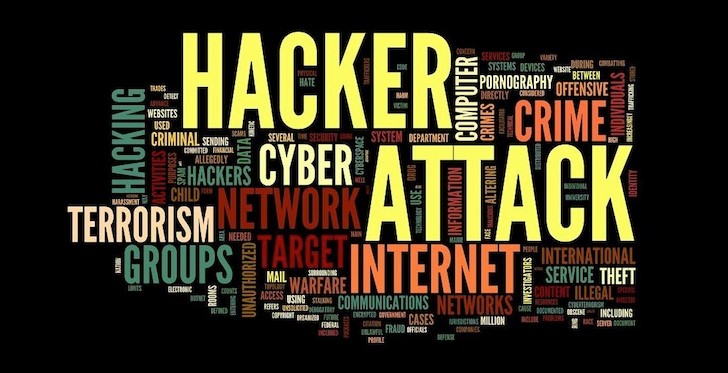Cyber Warfare
The Future
Empowering Cybersecurity in Modern Warfare
Navigating the complexities of cyber warfare, we provide insights and strategies to safeguard critical infrastructures against evolving threats in the digital age.


19
219
Cyberattacks in 2024
Global Conflicts


In the digital age, the impact of cyber warfare on civilians has become a pressing concern, fundamentally altering the dynamics of conflict and everyday life. As nations increasingly engage in cyber warfare, the consequences extend far beyond military targets, directly affecting civilian populations in profound ways. Cyber warfare encompasses a range of tactics, including hacking, malware deployment, and information manipulation, all of which can disrupt essential services and create chaos in civilian life.
One notable example is the 2007 cyber attack on Estonia, where government, banking, and media websites were incapacitated for weeks. This attack not only paralyzed an entire nation but also highlighted the vulnerability of civilians to cyber threats. Citizens faced disruptions in accessing banking services, government information, and news, leading to widespread confusion and anxiety. The attack demonstrated how cyber warfare could undermine trust in institutions and create a sense of insecurity among the populace.
Similarly, the 2015 cyber attack on Ukraine's power grid left hundreds of thousands of civilians without electricity during the winter months. This incident showcased the devastating impact that cyber warfare can have on critical infrastructure, putting lives at risk and disrupting daily routines. When essential services like electricity and water supply are compromised, the consequences can be dire, particularly for vulnerable populations such as the elderly and those with medical needs.
The psychological effects of cyber warfare on civilians are also significant. The constant threat of cyber attacks can lead to a pervasive sense of fear and uncertainty. Citizens may feel powerless in the face of invisible adversaries, leading to anxiety and stress. The manipulation of information through disinformation campaigns can further exacerbate societal divisions, creating distrust among communities and eroding social cohesion. This psychological toll can have long-lasting effects on mental health and community stability.
Moreover, the rise of cyber warfare has led to increased surveillance and data collection by governments, often justified as a means of protecting national security. This can infringe on individual privacy rights and civil liberties, as citizens may find themselves under constant scrutiny. The balance between security and privacy becomes increasingly precarious, as the line between protecting the nation and infringing on personal freedoms blurs.
Civilians also bear the financial burden of cyber warfare. Cyber attacks can result in significant economic losses, not only for targeted organizations but also for the broader economy. Businesses may face downtime, loss of customer trust, and costly recovery efforts. These economic repercussions can lead to job losses and reduced public services, further impacting civilian life. For instance, the 2017 WannaCry ransomware attack affected thousands of organizations worldwide, including hospitals, leading to disrupted medical services and compromised patient care.
International cooperation is essential in addressing the impact of cyber warfare on civilians. Countries must work together to establish norms for responsible behavior in cyberspace and develop frameworks for accountability. Initiatives like the Budapest Convention on Cybercrime aim to facilitate this cooperation, enabling nations to respond effectively to cyber incidents that threaten civilian safety and security.
As technology continues to evolve, the tactics employed by cyber adversaries also change. Emerging technologies, such as artificial intelligence, can be weaponized to automate attacks, making them faster and more difficult to detect. This evolution poses new challenges for civilian protection, as the potential for widespread disruption increases. Staying ahead of these developments is crucial for safeguarding civilian interests.
In conclusion, the impact of cyber warfare on civilians is a significant and growing concern in modern conflict. As nations engage in cyber operations, the consequences for civilian populations must be prioritized. Protecting critical infrastructure, ensuring the integrity of information, and safeguarding individual rights are essential components of a comprehensive approach to cybersecurity. The future of warfare may well depend on the ability to navigate this complex digital landscape, where civilians are increasingly caught in the crossfire. As cyber threats continue to evolve, proactive measures will be essential in mitigating their impact on everyday life, ensuring that the rights and safety of civilians remain at the forefront of national security strategies. The stakes are high, and the need for a coordinated response to the challenges posed by cyber warfare has never been more urgent.
Terranova Aerospace and Defense Group, Security and Defense Division (SECDEF) has actively engaged in the Canadian and International Defense Sectors, establishing a robust local presence through strategic partnerships and collaborations. With offices strategically located across Canada and globally. Terranova SECDEF fosters relationships with key stakeholders, ensuring that national defense priorities are effectively met. The company's commitment to enhancing operational capabilities is evident in its participation in various defense initiatives, showcasing innovative solutions designed to bolster Canada's security and defense infrastructure. By integrating local and international expertise and resources, Terranova SECDEF not only strengthens its operational effectiveness but also contributes to the growth of the Canadian and International Defense Industry, thereby reinforcing multi-national’s defense postures. Through these efforts, Terranova SECDEF remains a vital partner in advancing Canada and the World's defense objectives while building lasting relationships within the community.
For mor information, reach out by email today at info@terranova-secdef.com
Understanding Cyber Warfare and Terrorism - Building Awareness
Contact Us for Cybersecurity Insights
Reach out to discuss cyber warfare and cybersecurity strategies.


Cyber Warfare Solutions
Enhancing cybersecurity to combat modern cyber warfare strategies and protect critical infrastructures worldwide.


Advanced Cybersecurity Measures
Protect against sophisticated cyber threats targeting military and civilian infrastructures effectively.
Threat Intelligence Analysis
Identify and mitigate risks posed by cyber warfare tactics through in-depth analysis.
Incident Response Services
Swiftly respond to cyber attacks and minimize damage to vital systems and networks.
Cyber Warfare
Exploring the impact of cyber warfare on global conflicts.


Cybersecurity Strategies
Protecting critical infrastructure from cyber threats and attacks.


Digital Defense
Innovative solutions for safeguarding against cyber warfare tactics.




Threat Analysis
Understanding vulnerabilities in military and civilian networks.
Information Warfare
Manipulating data to influence outcomes in conflicts.
→
→
→
→
Terranova Aerospace & Defense Group - Security and Defense Division
Innovative defense against global threats and challenges.
Contact Information
TERRANOVA Aerospace AND
DEFENSE GROUP
info@terranova-secdef.com
+1 (416) 800-6080
©Terranova Aerospace and Defense Group 2024. All rights reserved.